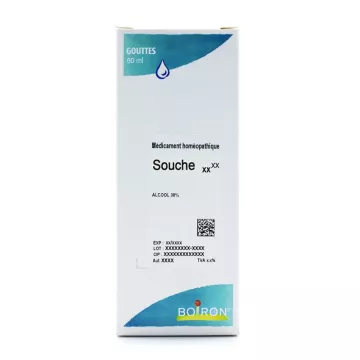

What is pancreatitis?
Pancreatitis is an inflammation of the pancreas, a gland located behind the stomach that plays an essential role in digestion and blood glucose regulation. It can take two main forms: acute and chronic. Acute pancreatitis manifests itself rapidly and can be resolved in a matter of days with appropriate treatment, while chronic pancreatitis develops over several years and can lead to permanent damage to the pancreas.
What causes pancreatitis?
The causes of pancreatitis vary according to its form. Gallstones and alcohol abuse are the most common causes of acute pancreatitis. Other factors include certain medications, infections, trauma, and anatomical abnormalities of the pancreas. For chronic pancreatitis, excessive and prolonged alcohol consumption is often responsible. Smoking is also a significant risk factor.
What are the symptoms of pancreatitis?
Symptoms vary according to the type of pancreatitis. Acute pancreatitis is often characterized by sudden, severe pain in the upper abdomen, which may radiate to the back. Other symptoms may include nausea, vomiting, fever and swelling of the abdomen. In chronic pancreatitis, pain may be less intense but more constant. Weight loss, diarrhea and diabetes may also develop over time.
How is pancreatitis diagnosed?
Diagnosis of pancreatitis usually begins with a physical examination and questioning about medical history and alcohol consumption. Blood tests are performed to check for elevated pancreatic enzymes. Medical imaging, such as abdominal ultrasound, computed tomography (CT) or MRI, may be necessary to assess the extent of inflammation and identify the underlying cause.
What are the treatment options for pancreatitis?
Treatment of pancreatitis depends on its severity and underlying cause. For acute pancreatitis, treatment may include hospitalization for fasting, intravenous hydration and pain medication. For pancreatitis caused by gallstones, surgery may be required. For chronic pancreatitis, treatment aims to manage pain and prevent complications. This may include dietary modifications, the use of pancreatic enzymes and sometimes surgery to remove damaged tissue.
Can pancreatitis be prevented? Certain measures can reduce the risk of developing pancreatitis, including avoiding alcohol abuse, maintaining a balanced diet rich in fruit, vegetables and whole grains, and avoiding smoking. It's also important to manage underlying medical conditions that may contribute to inflammation of the pancreas.
What are the risks associated with chronic pancreatitis?
Chronic pancreatitis can lead to a number of long-term complications. One of the most serious is pancreatic insufficiency, where the pancreas no longer produces the enzymes needed to digest food, which can lead to malabsorption and weight loss. There is also an increased risk of developing type 3c diabetes, due to the progressive destruction of the cells that produce insulin. Finally, people with chronic pancreatitis have a higher risk of developing pancreatic cancer.
Can pancreatitis be completely cured?
In the case of acute pancreatitis, many patients recover completely without long-term sequelae, especially if the cause is treated effectively. With chronic pancreatitis, however, there is no complete cure, but symptoms can be managed and damage to the pancreas limited through appropriate treatment and lifestyle changes.
What dietary adjustments are recommended for pancreatitis?
People suffering from pancreatitis, especially in its chronic form, need to adapt their diet to reduce the workload on the pancreas. It is generally advisable to follow a low-fat diet, rich in fruits, vegetables and whole grains, and to avoid fried foods and products rich in simple sugars. Hydration is also crucial. In some cases, the use of pancreatic enzyme supplements may be recommended to aid digestion.
What is the link between alcohol and pancreatitis?
Alcohol is one of the main causes of pancreatitis, particularly the chronic form. Alcohol abuse can cause repeated episodes of acute pancreatitis, which eventually damage the pancreas and lead to chronic inflammation. Reducing or eliminating alcohol consumption is essential to prevent recurrent attacks and manage chronic pancreatitis.
How does pancreatitis affect the daily lives of sufferers?
Pancreatitis can have a significant impact on quality of life. Pain, often severe, can limit daily activities and require regular use of medication. Dietary adaptations and special diets can also make social and family meals more complex. What's more, the stress of managing a chronic illness can affect patients' emotional and psychological well-being.